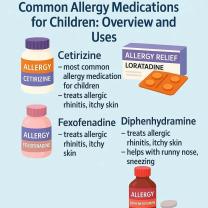How long can you live with heart failure?
The prognosis and life expectancy for individuals with heart failure can vary widely based on several factors, including the underlying cause of heart failure, the severity of the condition, overall health, and the effectiveness of the treatment. Heart failure is a chronic condition where the heart is unable to pump blood efficiently, leading to a reduced supply of oxygen to the body's tissues.
It's important to note that heart failure is a manageable condition, and with proper medical care and lifestyle adjustments, many people with heart failure can lead fulfilling lives. However, it is a serious condition, and the prognosis can range from relatively stable with proper management to more severe in cases of advanced heart failure.
Several factors can influence the prognosis:
Underlying Cause: The cause of heart failure, such as coronary artery disease, hypertension, or valvular heart disease, can impact prognosis.
Severity of Heart Failure: The severity is often classified based on the New York Heart Association (NYHA) functional classification, ranging from Class I (mild) to Class IV (severe).
Treatment Adherence: Strict adherence to medical treatments, medications, and lifestyle changes prescribed by healthcare professionals is crucial for managing heart failure effectively.
Overall Health: The patient's overall health, including the presence of other medical conditions, plays a role in prognosis.
Age: Older individuals may face additional challenges, but age alone is not the sole determinant of prognosis.
Medical Advances: Advances in medical treatments and therapies can positively impact prognosis.
It's essential for individuals with heart failure to work closely with their healthcare team to manage the condition effectively. This may involve medications, lifestyle changes, and in some cases, surgical interventions like heart valve repair or heart transplant.
While heart failure is a chronic condition, and there is no cure, many people live with it for many years. Some individuals may experience improvement in their condition with proper management, while others may face a more gradual decline in health. Regular check-ups with healthcare providers and open communication about symptoms and concerns are crucial for optimizing the management of heart failure.
It's important to consult with healthcare professionals for personalized information about prognosis and life expectancy based on individual health circumstances.
How long can individuals live with heart failure?
The life expectancy of individuals with heart failure varies depending on a number of factors, including the severity of the condition, the underlying cause of the heart failure, and the patient's overall health.
According to the American Heart Association, the average life expectancy for people with heart failure is about five years after diagnosis. However, many people with heart failure live much longer than this, and some people can even live for decades with the condition.
What factors influence life expectancy in individuals with heart failure?
The following factors can influence life expectancy in individuals with heart failure:
- Age: People who are diagnosed with heart failure at a younger age tend to have a shorter life expectancy than people who are diagnosed at an older age.
- Underlying cause of heart failure: Some causes of heart failure, such as coronary artery disease and cardiomyopathy, are associated with a shorter life expectancy than others, such as valvular heart disease.
- Severity of heart failure: People with more severe heart failure tend to have a shorter life expectancy than people with less severe heart failure.
- Overall health: People with other health conditions, such as diabetes, chronic kidney disease, or chronic obstructive pulmonary disease (COPD), tend to have a shorter life expectancy than people without these conditions.
Are there lifestyle changes or medical treatments that can extend life in heart failure patients?
Yes, there are lifestyle changes and medical treatments that can extend life in heart failure patients.
Lifestyle changes:
- Eat a healthy diet: Eating a healthy diet can help to control blood pressure, cholesterol, and blood sugar levels, all of which are important factors in managing heart failure.
- Exercise regularly: Regular exercise can help to improve heart function and overall fitness.
- Maintain a healthy weight: Being overweight or obese puts extra strain on the heart, so maintaining a healthy weight is important for people with heart failure.
- Quit smoking: Smoking damages the heart and blood vessels, so quitting smoking is essential for people with heart failure.
Medical treatments:
There are a number of medications that can be used to treat heart failure, including:
- ACE inhibitors and angiotensin receptor blockers (ARBs): These medications help to lower blood pressure and reduce the workload on the heart.
- Beta blockers: These medications help to slow down the heart rate and reduce blood pressure.
- Diuretics: These medications help to remove excess fluid from the body, which can reduce symptoms of heart failure, such as shortness of breath and swelling.
- Digoxin: This medication helps the heart to beat more strongly.
- Aldosterone antagonists: These medications help to protect the heart from damage.
In some cases, surgery may also be an option for people with heart failure. For example, coronary artery bypass grafting (CABG) may be recommended to improve blood flow to the heart, or a heart transplant may be recommended for people with very severe heart failure.
By making healthy lifestyle changes and taking prescribed medications, people with heart failure can often extend their life expectancy and improve their quality of life.











